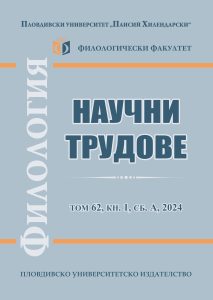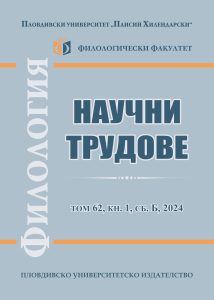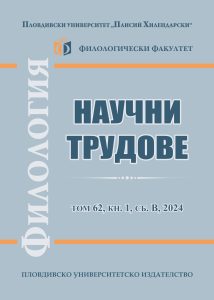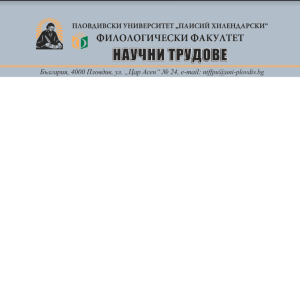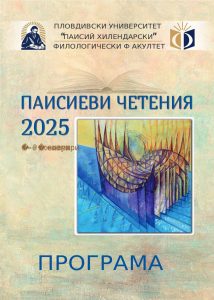Processing and publication fee
No payment is required from authors for manuscript submission, processing or publication. If the paper has been presented at the annual conference, a registration fee might apply.
Open access policy
Complete texts of the articles are freely available online. Submitting a manuscript to NTFFPU means that authors agree with this open access policy which enables unrestricted non-commercial access and reuse of all published articles for research and education purposes.
Reporting standards
Authors of the submitted manuscripts are expected to present an accurate account of the work they have performed; said account should be based on arguments and objective discussion of its significance. Underlying data should be represented accurately in the paper. Fraudulent or knowingly inaccurate statements are considered unethical behavior and thus unacceptable. The required abstract and key words should be in good English. Book reviews should also be accurate and objective. Manuscripts will follow the submission guidelines of the edition.
Cooperation with the Editorial Team
By submitting a manuscript authors agree to the policies of NTFFPU. They give their permission that the manuscript is evaluated by at least two independent anonymous reviewers. They also agree that the texts, including the information provided in English (title, key words and abstract) are edited by our proofreading team. Authors of the manuscripts are expected to fully cooperate with the Editorial Team during the whole publishing process. They are required to observe the deadlines and promptly notify the editorial staff about any delays. In cases where the peer reviews contain suggestions for revision, the Editorial Team’s view is that it is the author’s obligation to consider them carefully and either accept them or present a solid counterargument(s) explaining the disagreement. When revising their manuscript, authors are required to use the file sent back to them with corrections and comments and clearly mark the changes introduced.
Should the author decide to withdraw a submitted paper as a result of irreconcilable differences in opinion with the reviewers, he or she is expected to notify the editorial staff in a timely manner via email. Authors should not assume their manuscript has been withdrawn until they have received a confirmation letter from the editor’s office. Withdrawing a manuscript being processed / initiating a retraction after publication for no apparent reason is considered unethical behavior and is not tolerated.
Originality, plagiarism, and acknowledgment of sources
It is the responsibility of the authors to ensure that the work submitted is entirely original and that the findings and/or words of others used as supporting arguments or as theoretical/practical ground for the research reported in the paper have been properly cited or quoted. Information obtained from third parties in a conversation, discussion or correspondence, as well as obtained in the course of confidential services such as reviewing manuscripts can be used only upon written permission from the source and with appropriate acknowledgment.
The Editorial Team has adopted and fully supports the definition and understanding of plagiarism provided by Elsevier on their Publishing Ethics page: “Plagiarism takes many forms, from ‘passing off’ another’s paper as the author’s own paper, to copying or paraphrasing substantial parts of another’s paper (without attribution), to claiming results from research conducted by others. Plagiarism in all its forms constitutes unethical publishing behavior and is unacceptable.”
Authors should be aware that, in addition to the various forms of plagiarism (use of images, pictures, photographs, tables, diagrams, graphs, schemes or other forms of graphical information without indicating the source, etc.), the edition does not accept incorrect borrowings. The Editorial Team considers the following to be forms of incorrect borrowing:
- word for word citation from a source without quotation marks (even when the source has been indicated);
- incorrect references (incomplete bibliographic information about the sources, which prevents their identification);
- not referencing to the primary source of the borrowed text without clear indication of this fact;
- excessive citation (even when references to the sources and graphical highlighting of the cited text are provided), the volume of which is not justified by the genre and aims of the article.
- translation of excerpts from other sources used in the manuscript without proper quotation/references and presented as own.
Papers will be rejected at any stage of the publication process if plagiarism is confirmed. Should this happen after publication, the paper will be retracted (please see the Retraction guidlines below).
The University of Plovdiv (i.e. the Publisher)ownslicensedAntiplagiat software – StrikePlagiarism – which is used for detecting instances of plagiarism.
Multiple, redundant or concurrent publication
The Editorial Team adheres to the universally accepted rule that submitting the same manuscript to more than one edition for primary publication concurrently constitutes unethical publishing behavior and is not allowed. An author is expected to not submit for consideration in this edition a previously published paper. Some exceptions such as translations of a work previously published elsewhere might be justifiable if the findings are expected to reach a wider academic audience because of the different language. In this case, the author and Editor-in-Chief must agree to the secondary publication, which must reflect the same data and interpretation of the primary document. The primary reference must be cited in the secondary publication.
Authorship of the paper
All individuals who have made significant contributions to the submitted manuscript should be listed as co-authors. If there are others who have participated in certain substantial aspects of the research project (e.g. translation, language editing or consultation), they should be acknowledged or listed as contributors. If one of the authors is responsible for communication with the editorial staff, he or she should ensure that all co-authors have seen and approved the final version of the paper and have agreed to its submission for publication.
Disclosure and conflicts of interest
All authors are expected to disclose in their manuscript any financial or other conflict of interest that might be construed to influence the results or interpretation of their manuscript. As is appropriate in academic writing, all sources of financial support for the project should be disclosed. Examples of potential conflicts of interest which should be disclosed include employment, honoraria, paid expert testimony, mutual projects with the publisher (University of Plovdiv), and grants or other funding. Potential conflicts of interest should be disclosed at the earliest stage possible. Reviewers should be informed about research funders and the role funders have played in that research.
Fundamental errors in published works
If an author discovers a significant error or inaccuracy in his/her own published work, it is the obligation of the author to promptly notify the Editor-in-Chief and cooperate so that the error can be corrected by amending or retracting. If the Editor-in-Chief receives reliable evidence that a published work contains a significant error, it is again the obligation of the author to promptly correct or retract the paper or provide the editor with evidence of the correctness of the original paper.
Retraction guidelines
Retraction can be initiated either by the author(s) or the Editor-in-Chief.
Possible reasons for retraction:
- the paper contains plagiarism (please see the Plagiarism policy above);
- a third party expresses claims concerning copyright for the article in general or some of its its components (e.g. any form of graphics used within) and provides substantial evidence of copyright infringement;
- the findings have previously been published elsewhere before the date of its publication in the edition;
- the published article has serious errors which put its academic value in question.
In such cases the Editor-in-Chief should initiate revision, after which the article may be retracted. A notification is sent to the author of the article.
In such cases, the article is not physically withdrawn from the published edition and the file of the issue on website. The editorial office publishes the notification of article retraction on the corresponding page of the issue contents on the official edition site and the reasons for this action. While the article is under investigation, the editorial office publishes a notice of concern about the problems uncovered in the materials in question.
Article removal
In rare cases, an article will need to be removed for legal reasons. According to best practices, the metadata (Title and Authors) will be retained while the text will be replaced with a screen indicating the article has been removed for legal reasons.
For more detailed guidelines about responsible research, authors can refer to Internationals standards for authors published by COPE.


